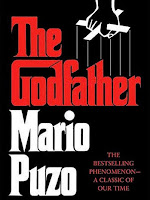Two Books and a Reading

Chuma On Septeber 26, 2012 I attended a book reading organised by the Writers Project of Ghana at the Goethe Institute dubbed the Ghana Voices Series. There I happened to meet one of Nigeria's great writers Chuma Nwokolo, whose short story Quarterback and Co I read and reviewed in the first edition of the African Roar anthology . If there was an author who was in charge of his work and who read with passion, vigour and complete control, it was Chuma Nwokolo. I followed Chuma on his facebook page ever when I read that phantasmagorical short story of his and heard of his works, some; however, I never really took the time to search more about him. In fact, after that short story, perhaps because I erroneously thought most of the contributors were new authors, I didn't delve deeper into any of them until recently when his collection of short stories - The Ghost of Sani Abacha - popped up again. Chuma read from this and also from his Diaries of a Dead African and a poe...







